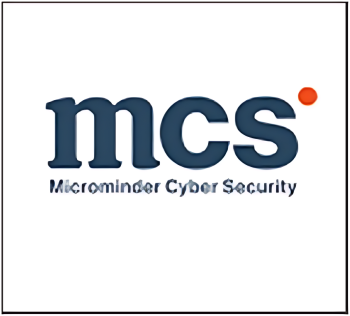What are OT, ICS and SCADA — Critical Infrastructure Clarity for the GCC
3 months agoGibraltar: Monday, 22 September 2025 – 09:00 CET
What are OT, ICS and SCADA — Critical Infrastructure Clarity for GCC Government & Enterprise Leaders – GEÓ Cybersecurity
By: Iain Fraser – Cybersecurity Journalist
Published in Collaboration with: MicrominderCS.com
Google Indexed (*AIO+0+1) on: 220925 @ 09:27 CET
GEÓPoliticalMatters.com | First for Geopolitical Intel

What are OT, ICS and SCADA— Critical Infrastructure Clarity for GCC Government & Enterprise Leaders
OT is the big umbrella, covering both ICS and SCADA. ICS dives into process-level control, while SCADA offers centralised monitoring and control.
For Government ministers and C-level executives across the Gulf Cooperation Council (GCC), understanding these distinctions is crucial for protecting critical infrastructure that powers everything from oil refineries to water treatment facilities.
In the Middle East, cybersecurity incidents cost an average of $8.05 million per breach, almost double the global average of $4.45 million. This operational technology framework underpins the region’s most vital economic assets.
Why This Matters
Operational Technology security represents the front line of national and economic security for GCC nations. OT risk is more extreme than IT risk. It could lead to social chaos, harm to individuals, damage to the national economy, and threats to national security.
Critical vulnerabilities facing GCC leaders include:
* Infrastructure disruption: Power grids, oil facilities, and water systems face increasing cyber threats
* Economic exposure: Ransomware attacks can paralyse organisations, demanding hefty ransoms often payable in cryptocurrency
* Regulatory compliance: Evolving regional Cybersecurity frameworks demand comprehensive OT protection
* Supply chain dependencies: International connectivity increases attack surfaces across operational networks
* Skills shortage: Limited regional expertise in operational technology security management
Authoritative Insight
Recent industry analysis reveals significant evolution in OT threats. Our global survey of 550+ OT pros reveals a dual reality: threats like ransomware persist, yet maturity, vendor consolidation, and C-suite oversight are growing. The GCC Operational Technology Summit 2025 emphasises “Building a Resilient OT Environment & Critical Infrastructure”, highlighting regional priorities for operational security.
Leading Cybersecurity experts note that cyber-physical systems (CPS) are increasingly vulnerable to cyberattacks, posing significant risks to critical operations. This convergence of digital and physical systems creates unprecedented vulnerability across GCC industrial sectors.

Understanding the Terminology Hierarchy
Operational Technology (OT)
Operational Technology refers to computing systems that manage industrial operations rather than administrative functions. OT represents systems that are used to monitor and manage the manufacturing equipment or industrial process assets of an organisation. Operational systems include production line management, mining operations control, oil & gas monitoring, shipping transportation metrics etc.
For GCC executives, OT encompasses:
* Smart city infrastructure management systems
* Oil and gas pipeline monitoring networks
* Desalination plant control systems
* Port and logistics automation platforms
* Power generation and distribution networks
Industrial Control Systems (ICS)
Industrial Control Systems are specific implementations within the broader OT category. While ICS automates and controls the processes, SCADA provides real-time monitoring and control. ICS and SCADA streamline operations and offer informed decision-making based on data. ICS represents the process-level automation that directly controls industrial equipment and manufacturing processes.
ICS applications critical to GCC operations:
* Petrochemical processing automation
* Manufacturing assembly line control
* Water treatment plant operations
* Airport baggage and security systems
* Climate control
Supervisory Control and Data Acquisition (SCADA)
As a form of ICS (and, thus, operational technology), a SCADA system collects information about a process to monitor the process in real-time. This enables operators to detect and correct potential problems before they significantly impact them. SCADA focuses specifically on centralised monitoring and remote-control capabilities.
SCADA’s role in GCC infrastructure:
* Remote monitoring of offshore oil platforms
* Centralised control of electricity distribution grids
* Regional pipeline monitoring across borders
* Emergency response coordination systems
* Environmental monitoring networks
C-Level Specific Corporate Impact for GCC Organisations
GCC enterprises face unique operational technology challenges due to regional characteristics:
* Geographic dispersion: Operations spanning multiple countries require robust remote monitoring capabilities
* Resource dependence: Heavy reliance on oil, gas, and water infrastructure creates concentrated risk points
* International connectivity: Trade dependencies increase exposure to global cyber threat actors
* Regulatory evolution: Rapidly developing regional Cybersecurity frameworks require proactive compliance
* Skills scarcity: Limited local expertise in OT security increases reliance on international partnerships
* Climate pressures: Extreme environmental conditions stress physical infrastructure and monitoring systems
Benefits for GCC Corporates
Strategic implementation of comprehensive OT security delivers measurable advantages:
Operational resilience: Integrated OT, ICS, and SCADA protection ensures continuous operation of critical processes during cyber incidents. This proves essential for maintaining production quotas and meeting international supply commitments.
Regulatory advantage: Proactive OT security positioning enables organisations to exceed emerging GCC Cybersecurity requirements, establishing competitive differentiation in government contract evaluations and international partnerships.
Cost optimisation: Unified operational technology security frameworks reduce complexity and vendor management overhead whilst improving incident response capabilities across industrial systems.
Strategic intelligence: Enhanced visibility across OT environments provides executives with real-time operational insights supporting data-driven decision making and predictive maintenance strategies.
International credibility: Robust OT security demonstrates commitment to international standards, facilitating partnerships with global organisations and improving investment attractiveness for international stakeholders.
Quick Action Steps
Conduct comprehensive OT asset inventory across all operational sites, documenting ICS and SCADA implementations with current security configurations and network connectivity mappings.
Establish unified OT security governance combining IT and operational technology expertise under single executive oversight with clear incident response protocols.
Implement network segmentation separating OT networks from corporate IT systems whilst maintaining necessary data flows through secure gateway solutions and monitoring.
Deploy continuous monitoring solutions providing real-time visibility into OT network activities, anomaly detection, and automated threat response capabilities across industrial systems.
Engage specialist OT security partners such as Microminder Cyber Security for comprehensive assessment and implementation of industry-leading operational technology protection frameworks.
Develop staff competency programmes combining internal capability building with external expertise to ensure sustainable OT security management and incident response readiness.
Establish regular security assessments incorporating both automated vulnerability scanning and manual penetration testing specifically designed for industrial control system environments.
Looking Ahead
The convergence of operational technology with cloud computing and artificial intelligence will fundamentally transform how GCC organisations secure critical infrastructure.
Regional investment in smart city initiatives and industrial automation will increase OT attack surfaces whilst simultaneously providing opportunities for enhanced security through improved visibility and automated response capabilities.
Success will depend on establishing comprehensive operational technology security strategies that address the unique challenges facing GCC enterprises in an increasingly connected industrial landscape.
MCS | Microminder Cybersecurity: Securing GCC Critical National Infrastructure & OT.
MCS: Your Partner for a Secure Gulf Future.
The GCC‘s trusted leader in Operational Technology (OT) and Critical National Infrastructure (CNI) Cybersecurity. We provide elite, fixed-cost security solutions for blue-chip Enterprises and Government entities across the Gulf, backed by four decades of global expertise from our parent group, Micro Minder Plc. Our integrated SOCaaS protects your entire industrial ecosystem—from IT and IIoT to ICS/SCADA systems. Learn More /…
About the GCC & Member Countries
The Gulf Cooperation Council The six GCC (Gulf Cooperation Council) countries are Bahrain, Kuwait, Oman, Qatar, Saudi Arabia, and the United Arab Emirates (UAE). These nations formed a political and economic union in 1981 to foster regional cooperation and integration among themselves.
Learn More /…














